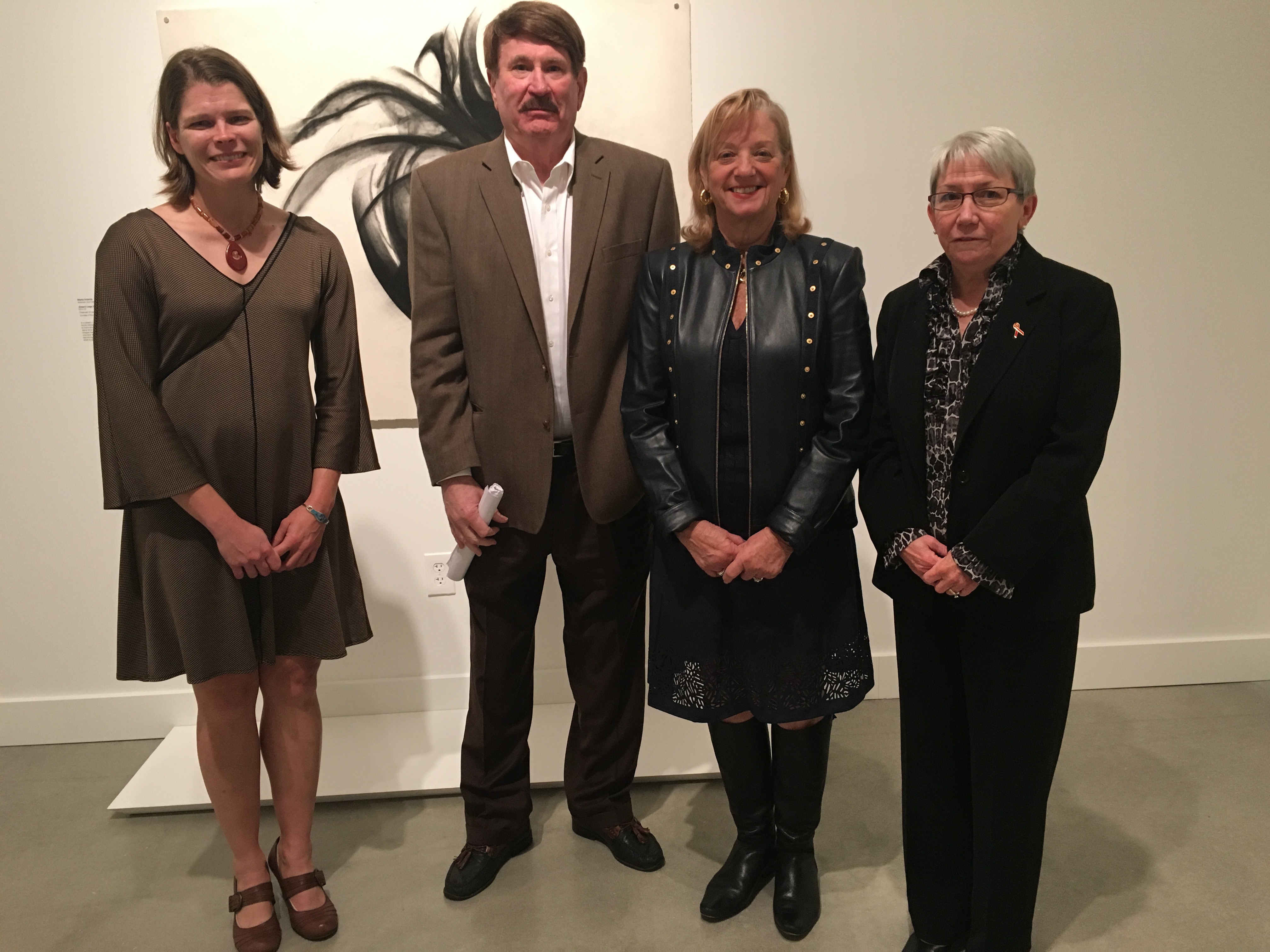“Please do not be disappointed if my answer to your question is ‘I don’t know. That’s going to be decided by the implementation committee and the operational committees as they move forward.’”
Such was the warning KSU President Daniel Papp gave audience members before answering questions posed about Kennesaw State’s consolidation with Southern Polytechnic State University.
News of the 2015 consolidation of KSU and SPSU caught members of both institutions off guard. In a town hall meeting held Friday afternoon in the packed Prillaman Hall auditorium, Papp attempted to answer the questions and concerns of students, faculty and staff about what the consolidation means for KSU as an institution.
While the answers to many questions remain unanswered until committees are formed to work out specifics of the merger, Papp managed to explain in some detail what to expect from the consolidation process.
Rationale
Papp said a key reason for the consolidation is the decrease in funding for higher education within the state over the last seven or eight years.
He said there have been a number of consolidations over the last few years within both the Technical College System and The University System of Georgia.
“One of the major reasons for consolidation is to provide economic efficiencies,” Papp said. The money saved by reducing administrative and back office costs as well as “other duplicative functions” will be redirected toward instruction, student support and research.
“Another key reason for consolidation is to provide broader educational opportunities to students,” Papp continued.
He said the consolidation would allow students a broader array of classes without having to transfer to another university, adding that the merger would increase the number of extracurricular and co-curricular activities available to students.
Timeline
Papp said the Board of Regents would meet Tuesday and Wednesday and “most likely give formal approval for moving forward with consolidation.”
After that, Papp said, he and SPSU President Lisa Rossbacher plan to create a 20-member implementation committee consisting of an equal number of people from each school. The implementation committee will then form a number of operational committees that will put together a number of “consolidation portfolios” to work out details regarding the merger over the course of the next nine or 10 months. Findings are to be submitted to the Southern Association of Colleges and Schools at the end of 2014. The Board of Regents will then finalize consolidation plans in January 2014, and if everything goes according to the tentative plan, Papp said, the actual merger of the two schools will occur at the beginning of Fall Semester 2015.
Student Enrollment
KSU has approximately 25,000 students and Southern Polytechnic has about 6,500. Combined, the university will have more than 31,000 students, a number that may increase with the creation of KSU’s football team and the construction of the 176,000-square-foot recreation center.
Papp said he has asked the Board of Regents to raise KSU’s admission standards for a number of years and has regularly been denied, adding that he does not foresee a cap being placed on student enrollment.
Cutbacks and Concerns
Papp assured that professors’ tenure would continue to be honored at the newly consolidated KSU. Faculty members of both institutions have expressed concerns that teaching jobs may be lost as a result of the merger.
Nancy Hoalst-Pullen, an associate professor in KSU’s department of Geography and Anthropology, said she has concerns about what the consolidation means for everybody involved.
Hoalst-Pullen, who serves as the director of the KSU’s Geographic Information Science program, said she’s concerned because SPSU offers a very similar program and is worried the consolidation means many of her department’s adjunct professors will lose their jobs.
“A lot of these adjuncts may or may not be coming back because of that duplication,” she said. “Some of our adjuncts are our best teachers, so it’s a little disheartening to know what’s going to happen to them.”
Ronny Richardson, the chair of SPSU’s Business Administration department, said his faculty members are also worried about keeping their jobs.
“We’re relatively small compared to the Coles College of Business,” Richardson said. “They’re about nine times as large as we are. I expect that we will just be absorbed into Coles.”
Richardson has worked at Southern Poly for 15 years.
“I’m as worried as they are because we simply have no idea what’s going to happen,” he said. “At this point, I’m keeping all of my options open.
KSU Reaction
While the majority of Southern Poly’s community was upset by the announcement that their school would be absorbed by the much-larger Kennesaw State, many KSU students are taking the news in stride.
Andrew Bates, a KSU student studying Psychology and Sociology, said the consolidation is a good deal for KSU but not so good for Southern Poly.
“They got the short end of the stick,” Bates said, adding that SPSU is losing its notoriety as a school, particularly as a technical school. He said students graduating with degrees in technical fields will have the stigma of having attended a liberal arts school when they apply for jobs.
Jacob Meeks, a KSU Sociology major said he thinks the consolidation is good because it offers KSU students a wider variety of subjects to study.
“Pre-law and pre-med will be the only real undergraduate majors that we’ll be missing afterward,” Meeks said.
“I really don’t see this as a quote ‘consolidation,’” Hoalst-Pullen said. “I see it as more like we’re absorbing them and they’re going to become some sort of college of engineering and architecture.”
She said while SPSU will still have its own distinction, the consolidation seems one- sided and Southern Poly “has essentially lost everything.”
“To call it a consolidation, I think, is kind of a slap in the face for them,” she said.

